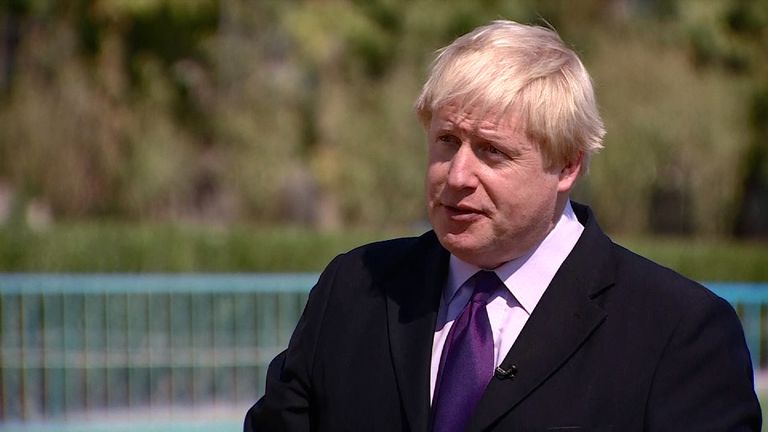Brexit: 76% of chief execs mull shift abroad despite UK confidence
A survey of top bosses finds uncertainty over the UK's trading future with the EU is driving contingency planning.
Monday 26 September 2016 14:44, UK
More than three quarters of company chief executives are considering shifting operations abroad following the UK's vote to leave the EU, according to a survey.
The study, by business services group KPMG, found 76% of bosses, had embarked on such contingency planning despite a majority (69%) expressing confidence in the UK economy.
It showed 73% expected their own business to expand - with the biggest growth worry seen coming from the world economy for 62% of those questioned.
It said 12% were most concerned about domestic weaknesses.
KPMG said that of those bosses considering a shift of operations or headquarters from the UK, most CEOs (chief executive officers) were concerned about maintaining links with the European common market.
Simon Collins, KPMG's UK chairman, said: "Over half believe the UK's ability to do business will be disrupted once we
Brexit and therefore, for many CEOs, it is important that they plan different scenarios to hedge against future disruption."
He added: "Policymakers should be really concerned about a leaching of British business abroad and should engage with business early to understand what assurances they can offer and closely monitor any shifts overseas."
The bitter EU referendum campaign was dominated, for the business community, by warnings of economic meltdown and - in the case of some US banks - threats to leave the UK following a Leave vote.
While recent data suggests the UK is on course to avoid recession, following a pick-up in output in August after a dire July, it is likely to be 2019 at the earliest before the UK's future trade arrangements with the EU will be known.
That is because the Prime Minister has signalled it will not be until next year that the Government triggers Article 50 of the Lisbon Treaty to formally commence the UK's exit negotiations.
Nevertheless, banking bosses warned earlier this month that huge risk and harm could be inflicted on London's financial services sector if the industry is not given enough time to adjust to Britain's future trading relationship with the EU.





